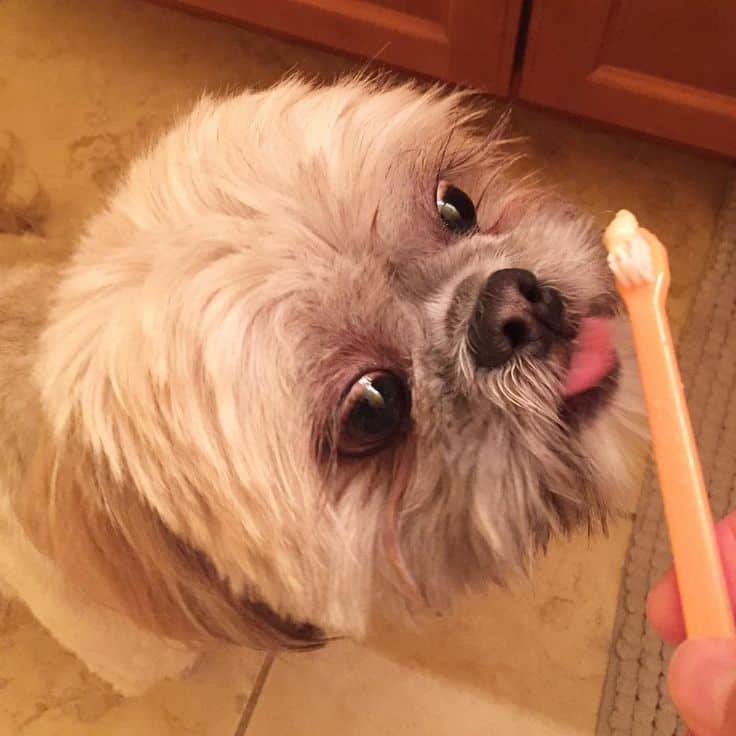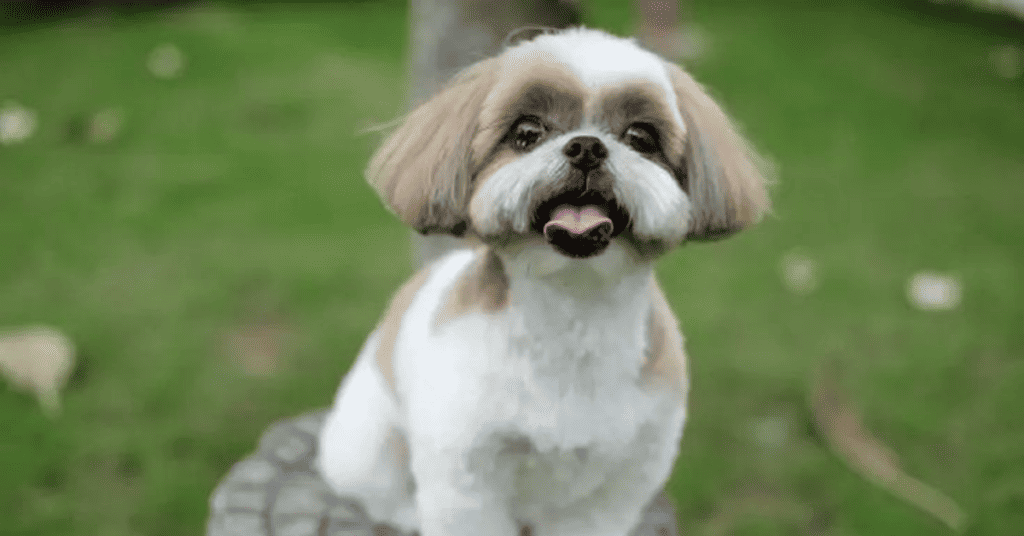
Shih Tzu owners must be vigilant when it comes to the respiratory health of their beloved pets. Brachycephalic Airway Syndrome poses significant concerns for this breed, including issues such as stenotic nares, elongated soft palate, collapsed larynx, and tracheal problems.
Recognizing the symptoms and seeking timely intervention is crucial to prevent severe complications. In this article, we will delve into the causes, diagnosis, and treatment options for these respiratory issues, equipping Shih Tzu owners with valuable knowledge to ensure the well-being of their furry companions.
Understanding Brachycephalic Airway Syndrome
One of the key aspects of understanding Brachycephalic Airway Syndrome is recognizing that approximately 50% of Shih Tzu with this condition exhibit both elongated soft palate and stenotic nares.
Brachycephalic breeds, such as Shih Tzu, are prone to respiratory issues due to their unique head structure.
Brachycephalic Airway Syndrome encompasses various health issues, including stenotic nares, elongated soft palate, collapsed larynx, and tracheal problems.
Early diagnosis of these conditions is crucial for the well-being of affected dogs. Symptoms of Brachycephalic Airway Syndrome include breathing difficulties, panting, snoring, and coughing. Severe cases can lead to cyanosis, exercise intolerance, and collapse.
Treatment options for elongated soft palate and stenotic nares range from non-surgical measures, such as limiting activity during hot weather, to surgical intervention.
It is imperative to seek professional veterinary care to ensure proper management and explore the available treatment options for Shih Tzu with respiratory issues.
The Impact of Elongated Soft Palate on Shih Tzu Breathing
The elongated soft palate significantly affects the breathing of Shih Tzu, causing symptoms such as excessive panting, snoring, and cyanosis. Shih Tzu, along with other brachycephalic breeds, are prone to respiratory issues due to their head structure, known as Brachycephalic Airway Syndrome. This syndrome includes health issues like stenotic nares, collapsed larynx, and tracheal problems.
Approximately 50% of Shih Tzu with airway syndrome have both elongated soft palate and stenotic nares. Diagnosis of elongated soft palate is usually done by examining the mouth while the dog is awake or under sedation. Treatment options include non-surgical measures such as limiting activity during hot weather and surgical intervention to shorten the palate.
It is important for Shih Tzu owners to be cautious and seek professional veterinary care to prevent, detect, and properly manage respiratory issues in their pets.

Unveiling the Challenges of Stenotic Nares in Shih Tzu
Stenotic nares present significant challenges for Shih Tzu owners. These narrow nostrils can cause symptoms such as noisy breathing and exercise intolerance. Shih Tzu are a brachycephalic breed, which means they have a unique head structure that predisposes them to respiratory issues. Stenotic nares, along with other conditions like elongated soft palate and collapsed trachea, are part of a condition called Brachycephalic Airway Syndrome.
Approximately 50% of Shih Tzu with airway syndrome have both elongated soft palate and stenotic nares. It is important for Shih Tzu owners to be aware of the signs and symptoms of these respiratory issues in order to seek appropriate treatment. Non-surgical measures, such as weight loss and discontinuing the use of collars, can help manage stenotic nares. However, in severe cases, surgical widening of the nostril opening may be necessary.
Breathing exercises for Shih Tzu can also be beneficial in improving their respiratory function. It is crucial for owners to consult with a veterinary specialist or canine respiratory expert for proper diagnosis, treatment, and management of stenotic nares and other respiratory conditions in Shih Tzu.
Exploring Collapsed Trachea in Shih Tzu Breeds
Numerous Shih Tzu breeds exhibit symptoms of a collapsed trachea, including persistent coughing and honking noises, necessitating thorough examination and consideration of treatment options.
Collapsed trachea is a common respiratory problem in Shih Tzus, often associated with Brachycephalic Airway Syndrome. This condition occurs when the tracheal rings become weak and collapse, obstructing the airway.
Treatment options for a collapsed trachea in Shih Tzus depend on the severity of the condition. Non-surgical management may involve weight management, cough suppressants, and bronchodilators. In more severe cases, surgical intervention may be necessary to provide relief and improve the dog’s quality of life.
Prevention of breathing issues in Shih Tzus includes careful breeding practices to avoid passing on predispositions, regular exercise to maintain a healthy weight, and avoiding environmental triggers such as smoke and excessive heat.
Owners should be cautious and seek professional veterinary care to properly manage and treat respiratory issues in Shih Tzus.

Essential Tips for Improving Shih Tzu Breathing
Five essential tips can greatly improve the breathing of Shih Tzus and help alleviate respiratory issues.
- Understanding the causes of breathing issues in Shih Tzus and implementing effective management strategies is crucial for their overall health and well-being. Shih Tzus, like other brachycephalic breeds, are prone to respiratory problems due to their unique head structure. Brachycephalic Airway Syndrome, which includes issues such as stenotic nares, elongated soft palate, collapsed larynx, and tracheal problems, can greatly impact their breathing.
- Regular veterinary check-ups are of utmost importance for the early detection and proper management of these conditions. By limiting activity during hot weather, avoiding over-excitement, providing comfortable sleeping positions, using a harness instead of a collar for walks, and monitoring their weight, Shih Tzu owners can greatly improve their breathing and reduce the risk of respiratory issues.
However, it is always essential to consult with a professional veterinary specialist for guidance and proper care.
Ensuring the Well-being of Your Shih Tzu’s Respiratory Health
Regular veterinary check-ups and implementing effective management strategies are crucial in ensuring the well-being of your Shih Tzu’s respiratory health. Shih Tzus, like other brachycephalic breeds, are prone to respiratory issues due to their unique head structure. One common condition is Brachycephalic Airway Syndrome, which includes problems such as stenotic nares, elongated soft palate, collapsed larynx, and tracheal issues.
Preventing respiratory issues requires understanding these conditions and taking appropriate measures. Breathing exercises for Shih Tzus can help improve their respiratory function and overall well-being. However, it is important to approach these exercises with caution and under the guidance of a veterinary professional.
Regular veterinary check-ups are essential for early detection and proper management of respiratory problems. By being proactive in preventing respiratory issues and seeking professional veterinary care, you can ensure the best respiratory health for your beloved Shih Tzu.
Conclusion
In conclusion, Shih Tzu owners must be aware of the potential health risks associated with Brachycephalic Airway Syndrome. The prevalence of elongated soft palate, stenotic nares, and collapsed trachea in this breed highlights the need for early intervention and proper management.
By understanding these specific respiratory issues and their symptoms, Shih Tzu owners can take necessary precautions to ensure their furry friends can breathe better and lead healthier lives.
Professional veterinary care is essential for the well-being of their respiratory health.


